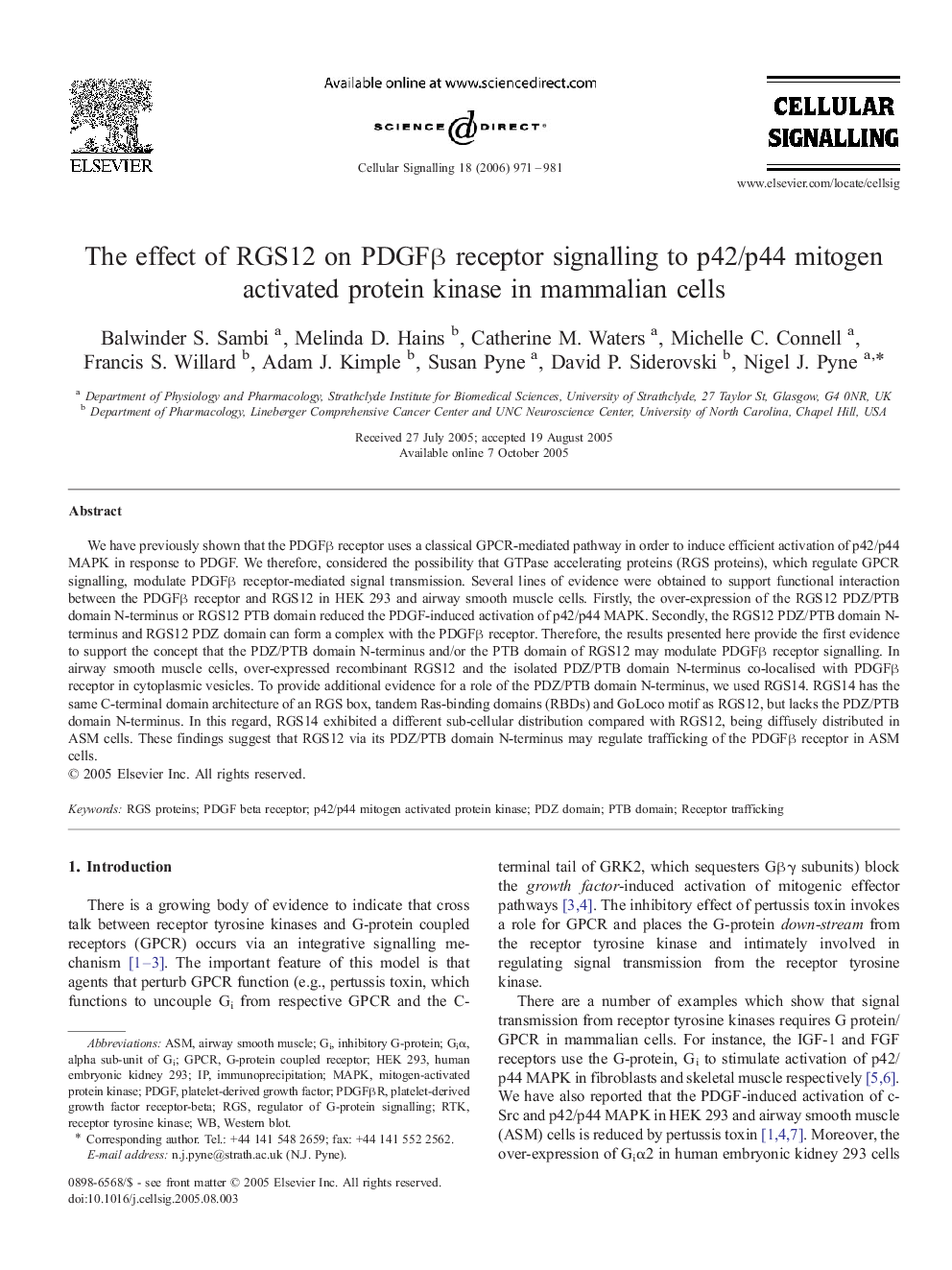| Article ID | Journal | Published Year | Pages | File Type |
|---|---|---|---|---|
| 1964473 | Cellular Signalling | 2006 | 11 Pages |
We have previously shown that the PDGFβ receptor uses a classical GPCR-mediated pathway in order to induce efficient activation of p42/p44 MAPK in response to PDGF. We therefore, considered the possibility that GTPase accelerating proteins (RGS proteins), which regulate GPCR signalling, modulate PDGFβ receptor-mediated signal transmission. Several lines of evidence were obtained to support functional interaction between the PDGFβ receptor and RGS12 in HEK 293 and airway smooth muscle cells. Firstly, the over-expression of the RGS12 PDZ/PTB domain N-terminus or RGS12 PTB domain reduced the PDGF-induced activation of p42/p44 MAPK. Secondly, the RGS12 PDZ/PTB domain N-terminus and RGS12 PDZ domain can form a complex with the PDGFβ receptor. Therefore, the results presented here provide the first evidence to support the concept that the PDZ/PTB domain N-terminus and/or the PTB domain of RGS12 may modulate PDGFβ receptor signalling. In airway smooth muscle cells, over-expressed recombinant RGS12 and the isolated PDZ/PTB domain N-terminus co-localised with PDGFβ receptor in cytoplasmic vesicles. To provide additional evidence for a role of the PDZ/PTB domain N-terminus, we used RGS14. RGS14 has the same C-terminal domain architecture of an RGS box, tandem Ras-binding domains (RBDs) and GoLoco motif as RGS12, but lacks the PDZ/PTB domain N-terminus. In this regard, RGS14 exhibited a different sub-cellular distribution compared with RGS12, being diffusely distributed in ASM cells. These findings suggest that RGS12 via its PDZ/PTB domain N-terminus may regulate trafficking of the PDGFβ receptor in ASM cells.
